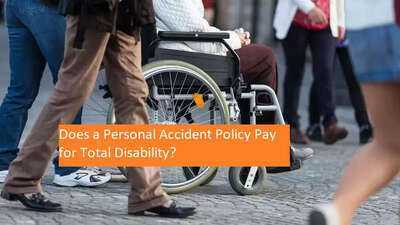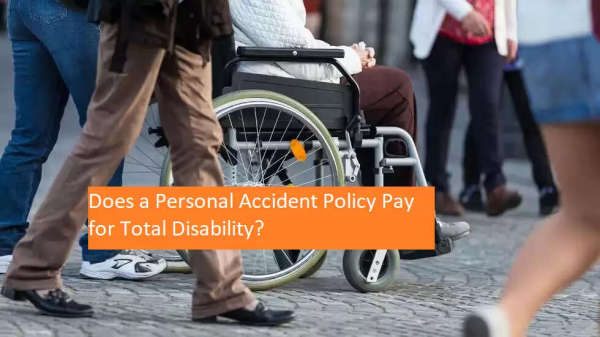

Personal accident insurance is designed to provide financial protection in the event of accidents, but does it cover total disability? Understanding the scope and conditions of this coverage is crucial for ensuring your and your family’s financial security.
What Is Total Disability?In insurance terms, total disability refers to a condition where a person becomes permanently and completely unable to work due to an accident. This can include:
Loss of both hands or sight in both eyes
Being bedridden for life
Complete inability to perform any occupation
Unlike partial disability, which offers limited benefits, total disability coverage provides higher payouts, ensuring that the insured and their dependents remain financially protected.
Coverage Under Personal Accident PoliciesMost personal accident policies typically include:
Accidental Death
Partial Disability
Total Disability
When total and permanent disability is confirmed, the policy pays out 100% of the sum insured, giving comprehensive financial support.
Key Conditions for Total Disability ClaimsAccident-Related: The disability must directly result from an accident. Situations such as self-inflicted injuries, disability caused under the influence of alcohol or drugs, or pre-existing medical conditions are excluded.
Medical Documentation: To file a claim, you generally need:
Detailed medical reports
Doctor’s certification of total disability
Sometimes, authentication from a government hospital
Incomplete or improper documentation can lead to claim rejection.
Why Total Disability Coverage Is ImportantTotal disability can drastically affect your income, leaving your family vulnerable to financial stress. The payout from a personal accident policy can help cover:
Family living expenses
Medical bills
Outstanding financial obligations
This coverage ensures that your loved ones remain financially secure even if you are unable to work.
Final TakeawayA personal accident policy does pay for total disability, provided the conditions are met and the claim is supported with proper medical evidence. It acts as a safety net, protecting you and your family from sudden financial hardships caused by accidents.